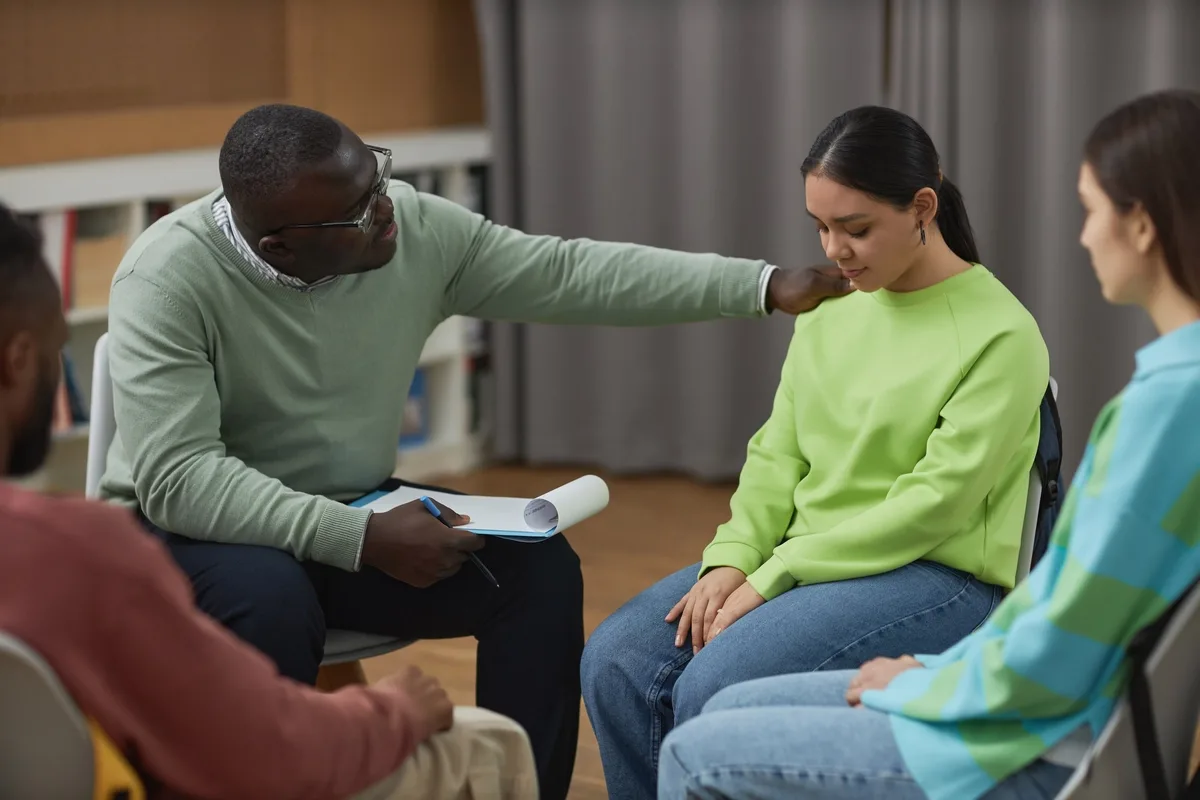24/7 Helpline:
(866) 899-221924/7 Helpline:
(866) 899-2219
Learn more about PTSD Treatment centers in Ninety Six
PTSD Treatment in Other Cities
Other Categories in Ninety Six

Other Insurance Options

Oxford

Evernorth

WellPoint

AllWell

Health Partners

Optum

Excellus

Highmark

Covered California

MHNNet Behavioral Health

Lucent

Holman Group

Optima

State Farm

ComPsych

BHS | Behavioral Health Systems

Medical Mutual of Ohio

Multiplan

Self-pay options

WellCare Health Plans












